David Fukuhara on Life in East Van after Internment
David Fukuhara (b. 1939) left East Vancouver at only 3 years old and went to live in an internment camp. Read his story describing how internment affected his identity.
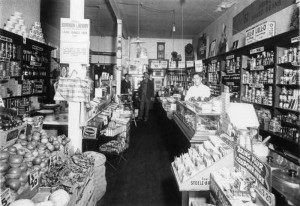
Our family story starts in 1895, when my grandparents on both sides of the family came to Canada. Both my parents were born here, so I’m third generation. My life started in 1939, when World War II came along. That disrupted our lives like crazy, after the Japanese bombed Pearl Harbor.
Our life changed in 1942. My father lost the grocery store he owned; he lost everything. He had a store at 44th and Main (it’s still there and it’s called Wong’s Market); back then, it was called Blyth’s Cash Grocery and it was part of the Kelly Douglas Group. There was a lot of prejudice against Japanese-Canadians after Pearl Harbor; everybody was painted with the same brush, so we got kicked out of Vancouver.
The Japanese community was dispersed, and it’s still dispersed now—there is only one association that keeps us together, the Greater Vancouver Japanese-Canadian Association, and they put together shows and things like that. We were considered a threat, even those of us who were born here. So my life actually started in 1942, when we got shipped out to an internment camp. We were given a choice to either go to one of the camps that the Government was setting up, or if we could get a family group together, we could go as a group.
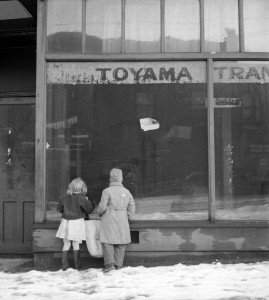
Image credit: Jack Lindsay, public domain
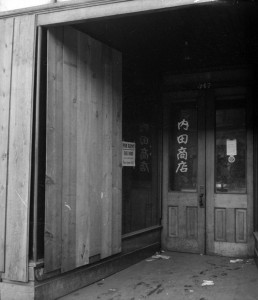
Image credit: Jack Lindsay, public domain
My grandfather was a very astute man (he’d made a lot of money by then and was quite rich), so he gathered the family group together— five families— and we all moved together up to Salmon Arm. We settled in a farm in a place called Tappen. My grandfather lived there for over ten years, but our immediate family moved out after five years and eventually ended up in Chase.
There was only one other Japanese family there and our association with Japanese people was minimal. I made friends with whomever I could, people I went to school with and with the Natives who lived there. They were way more accepting. I liked my country upbringing, which I think gives you a better outlook on life than living in the city.
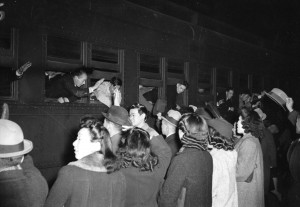
Image credit: Jack Lindsay, public domain
Returning in Vancouver was a brand new experience for me, because I had left at only three years old, but I could tell that for my parents it felt good to come back. My father went out and bought the best house he could buy in Vancouver and he was happy, but he never could open his business again. When we lived in Chase, he became friends with the town judge and was hired to run the sawmill for him; for 10-15 years, he ran the sawmill. But we had to move back to Vancouver, because we were growing up and had to go to university.
My mother was a very beautiful woman; we called her “the movie star”. My father was a mathematical genius—he could do compound interest in his head! I didn’t inherit that gene, but I had the gift of being able to see things ahead. When I worked in constructions, I could look at a set of drawings and have a vision of the place just like that, so I didn’t need the drawings anymore.
Back in Vancouver, I took trades training here at the Vancouver Vocational Institute, and I became an industrial electrician (which I did for the rest of my life). I loved my work and, during the ’60s and ’70s, I worked on almost every site in the Burrard Inlet. I made friends with a lot of Italians. There were a lot of them in constructions, mostly in concrete finishing or anything to do with stone. Work was different back then; the only protection I had was a hard hat, and the modern work safety measures didn’t exist until the ’80s.
When I meet up with other Japanese, I can’t relate, and I found that out quite early. I tried, but it didn’t work. I identified myself with caucasian people, because in that small town of Chase where I grew up there weren’t enough Japanese people to relate to. We did speak Japanese exclusively at home, so I have no problem with the language. However, when we were in school, our parents talked to us in Japanese, and we answered in English. I have traveled to Japan several times, but I felt no connection to the culture, even though I have cousins there. What I remember about this area is that… I wasn’t here. I could have been here, had it not been for the War.
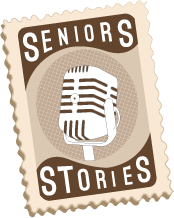



Leave a Reply